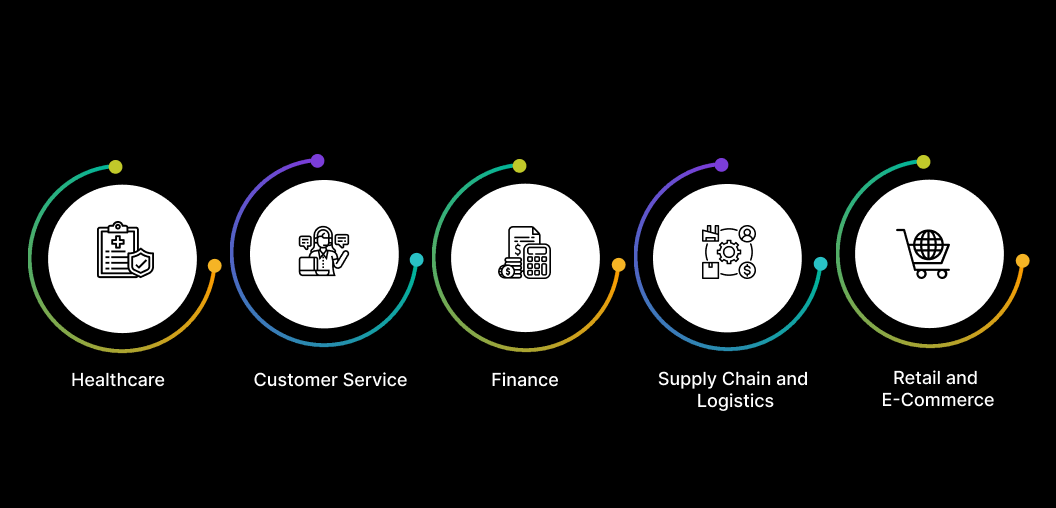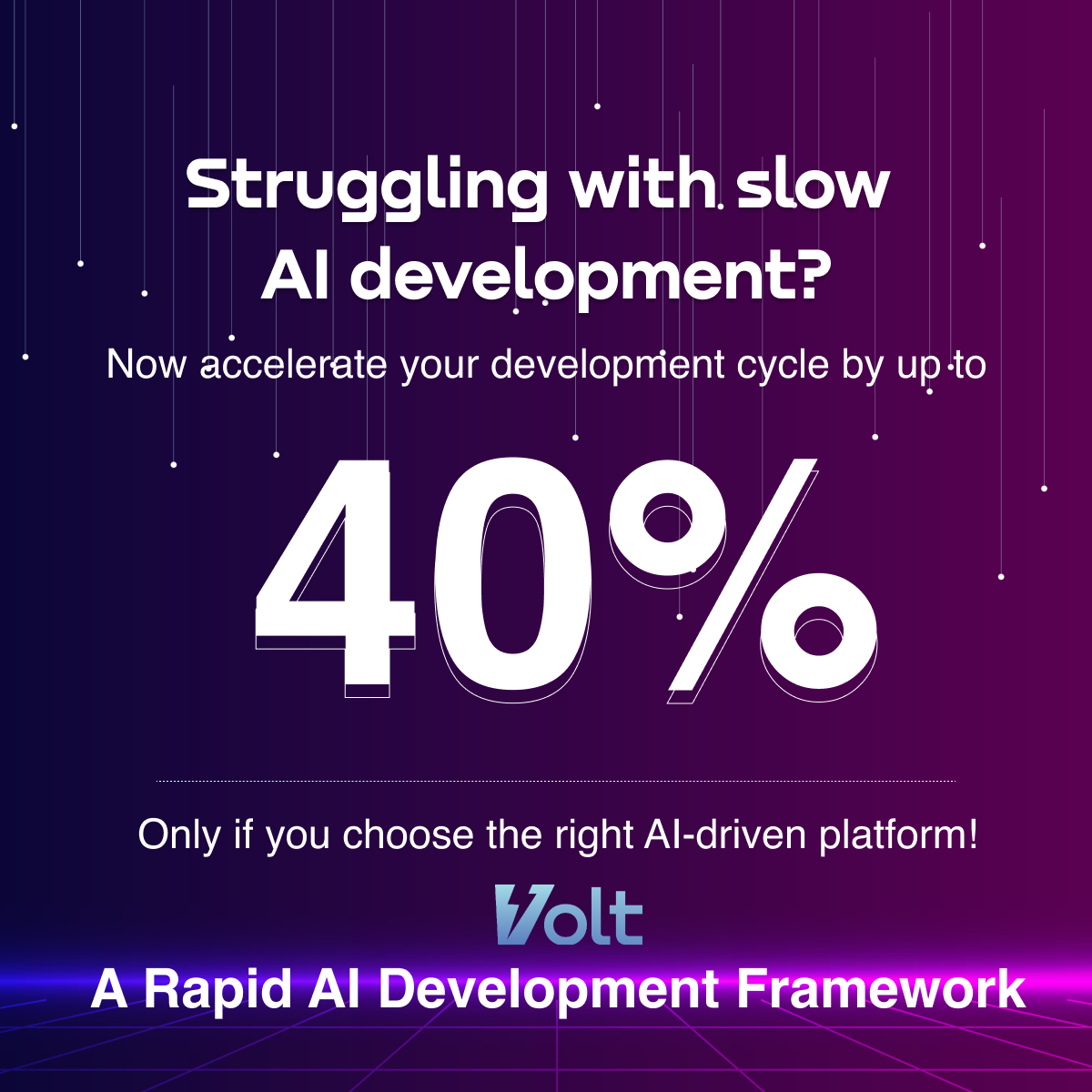Agentic AI
Agentic AI Architecture: Designing the Next Wave of AI Solutions
 Updated 18 Nov 2024
Updated 18 Nov 2024

AI is making rapid advancements, setting new milestones across various fields and transforming industries worldwide. Charting the course for the next decade and toward 2025, the emerging focus of AI is on the Agentic AI Architecture as the new approach to the structure of AI with features of autonomy, adaptability, and decision-making at its core. By industry estimations, the global AI market size is anticipated to reach $126 Billion by 2025, with considerable adoption linked to architectures such as Agentic AI. These systems are a sequence of applying more usual, specific AI models, which require clear instructions and do not include the potential for learning and changes in the information flow.
In this blog, we’ll delve deeper into the understanding of Agentic AI Architecture, and discuss briefly what it is, its possibilities and its relevance in the future of AI. This is not just about making the AI smarter but is focused on creating systems that can work on their own, make decisions based on data and learn to optimise their implementation. Whether you are an executive, a techie or an AI geek, this analysis of Agentic AI will offer insights into what will follow the current flavours of AI and how it can be used to build useful and usable systems.
What is Agentic AI Architecture?
Agentic AI Architecture is a design-oriented blueprint for creating AI systems that are Agents. These ‘agents’ act autonomously, generate their responses from inputs received from the environment and are capable of a wide range of tasks without any interference from human beings. The major difference between the developments of agentic AI and those of other generative models is that while the latter are rigid and are initiated to perform particular jobs, the former is general and capable of socializing with the AI components and learning from it and volunteering to change its behaviour accordingly as time goes on.
Read Our Case Study: Transforming Content Management with a Gen AI-Powered CMS and Publishing System for a TV Home Shopping and Retail Platform
Key Characteristics of Agentic AI Architecture
- Autonomy: AI agents are autonomous in their functioning hence disrupting human monitoring most of the time.
- Adaptability: They make their strategies relevant and accurate depending on the current conditions of the business since they can easily adapt to them.
- Contextual Awareness: The agentic AI systems reason based on the usage of real-time data about the systems’ surroundings.
- Continuous Learning: Such systems develop from interactions and even improve the responses they give in the long run.
If you are ready to learn how Agentic AI can benefit your business, let us know. Get in touch with Q3 Technologies now to learn more about our current advanced AI offerings.
The Importance of Agentic AI in Modern AI Systems
The concept of Agentic AI Architecture is going to be a groundbreaking achievement in the domain of AI due to its potential to accomplish many operations requiring little interference that would normally originate from a human operator. In contrast to other existing AI models that call for rewriting or retraining for the new tasks, agentic AI systems can elaborate knowledge, transfer it into distinct spheres and develop concurrently. These make increased usage of them in exigent and volatile jobs like customer care, health, finance and transport.
Benefits of Agentic AI Architecture
- Increased Efficiency: Self-acting smart machines eliminate steps and mince expenses.
- Improved Decision-Making: This is because context-aware systems are capable of making new decisions that will enhance the result.
- Enhanced User Experience: Adaptive agents incorporated an intelligent and customized interface for application users.
- Scalability: AI agents can take more work than before even if there are business enlargements.
Applications of Agentic AI Architecture Across Industries
Agentic AI Architecture is well-suited to a wide range of industries and is the subject of further analyses below. Here are some applications that demonstrate its transformative power:

1. Healthcare
In healthcare, agentic AI can be used to design systems that can continuously assess the health of the patient, read through the medical records and give health advisories based on the patient profile. Such agents can independently identify diseases, and notify healthcare providers, with the precise reaction time, which can be crucial to save lives.
Use Case:
An AI agent continually tracks a patient’s vitals and identifies changes in their symptoms requiring acute management or treatment by healthcare providers.
2. Customer Service
Agentic AI is changing the sector of customer service with the help of intelligent chatbots and virtual assistants, which can engage humans in natural conversations, determine the context of the conversation and solve customer issues independently. Unlike simple and static chatbots the AI agents improve their ability to respond to customers based on their experience over time.
Use Case:
An agent that comprehensively can understand a customer’s request, suggest a product, and even help the customer by making decisions based on the user’s choices.
3. Finance
In finance, areas like risk management, fraud detection, and investment advisory services can easily benefit from Agentic AI. These agents can process transaction data in real-time, identify fraud and carry out certain measures of prevention or mitigation immediately without the need for the human factor, which contributes to the safety and legal offence of the banks and other financial organizations.
Use Case:
A financial version of artificial intelligence that surveys transactions for fraud, reviews risk levels of investment and provides recommendations based on real-time data.
Want to upgrade your customer care or finance department with AI? Get in touch with Q3 Technologies to find out how our specialist AI services can meet these objectives.
4. Supply Chain and Logistics
The best application of agentic AI is the supply chain in which it can arrange supplies, monitor stock, and deliver on time. Such agents can independently monitor the shipment information, forecast possible end-of-road events and optimize delivery path and/or mode to increase effectiveness and save money.
Use Case:
A supply chain-linked AI agent that has tracking capabilities to monitor the length of time between suppliers and manufacturers or any other linked entities.
5. Retail and E-Commerce
In retail, there can be implemented agentic AI, which may help to create a shopping assistant and engage the customer. These agents can recommend products based on web surfing activities, patronage and previous experiences, thus providing a perfectly satisfying shopping experience.
Use Case:
An IT tool that assists customers in making their purchases through improving their knowledge base; a tool that will enable the sale of more products through an enhanced shopping experience.
Read Our Case Study: Optimizing E-commerce Application with AI-Driven Digital Transformation for a TV Home Shopping and Retail Platform
Key Components of Agentic AI Architecture
To create effective agentic AI systems, certain components are crucial:
- Multi-Agent Framework: Enables several agents to work and communicate with each other in a single platform to improve utility and response effectiveness.
- Reinforcement Learning: Integrate the agents to make good decisions by rewarding them while at the same time punishing them for their undesirable decisions for they to make better decisions in the future.
- Real-Time Data Processing: It allows agents to analyse data in real-time – thus providing relevant and prompt answers.
- Natural Language Processing (NLP): This is because it allows the agents to translate human language and further create the language which is so important in interfacing the users.
- Ethics and Compliance Mechanisms: Recently useful in industries such as health and finance, it maintains that agents remain legal in their activities.
Why Agentic AI Architecture is the Future of Intelligent Automation
The rising trend of agentic AI is due to customer awareness of the need for intelligent automation systems capable of operating in dynamic environments. The use of agentic AI in enterprises is set to rise to even greater levels by 2025 where more than 60% of companies are expected to employ the solution in their operation to streamline their activities in a better way, take on challenges more proactively and increase scalability of their systems.
Key Reasons for the Shift towards Agentic AI
- Autonomous Systems: Companies need systems that can work autonomously and find solutions autonomously, and minimally guided.
- Improved User Experience: Intelligent AI agents make interactions more favourable for the user since they adapt to the usage and provide unique replies.
- Cost-Effectiveness: Automated systems minimize operational costs because such processes are completed systematically and effectively.
With the help of Agentic AI Architecture, industries will also achieve shorter and more accurate decision-making, customized customer interaction, and AI systems evolving in parallel with the businesses. More industries are likely to adopt Agentic AI Architecture and this will lead to faster decisions, better ways of engaging the customers, and improved systems that evolve with the organization.
The Role of Q3 Technologies in Agentic AI Development
Q3 Technologies is driving innovation in Agentic AI development, creating intelligent systems that enhance autonomy, efficiency, and performance across industries. With cutting-edge solutions and a commitment to technological excellence, Q3 Technologies is shaping the future of AI. Our expertise in advanced AI architectures enables businesses to leverage smarter, more adaptive systems for transformative outcomes. We propose and implement AI Systems by using Multi-Agent Frameworks and Reinforcement Learning to solve your business problems.
Regardless of whether you require better customer relations, an efficient supply chain or higher security of your finances, Q3 Technologies’ expertise can get the job done. Welcome to the future of intelligence and automation. Contact Q3 Technologies now to learn how our Agentic AI can make a difference in the functionality of your organization.
Conclusion
The new frontier of discovery in the field of artificial intelligence is known as Agentic AI Architecture which is already preparing the world for systems that are self-driven, self-optimizing and capable of high-level decision-making. When companies shift towards intelligent automation, then agentic AI provides a roadmap towards a simpler, increased data-directed, and even more environment friendly. Agentic AI will not only reinvent the whole notion of automation but also equip organizations to operate optimally in a very dynamic digital environment by 2025.
Unlock the full potential of Agentic AI with Q3 Technologies as your trusted partner. Our expertise in developing advanced AI systems will empower your business to seamlessly integrate intelligent agents, driving success and achieving your goals with unmatched efficiency and precision. Contact Q3 today to set on the path to intelligent automation.
Table of content
- What is Agentic AI Architecture?
- Key Characteristics of Agentic AI Architecture
- The Importance of Agentic AI in Modern AI Systems
- Benefits of Agentic AI Architecture
- Applications of Agentic AI Architecture Across Industries
- Key Components of Agentic AI Architecture
- Why Agentic AI Architecture is the Future of Intelligent Automation
- Key Reasons for the Shift towards Agentic AI
- The Role of Q3 Technologies in Agentic AI Development



